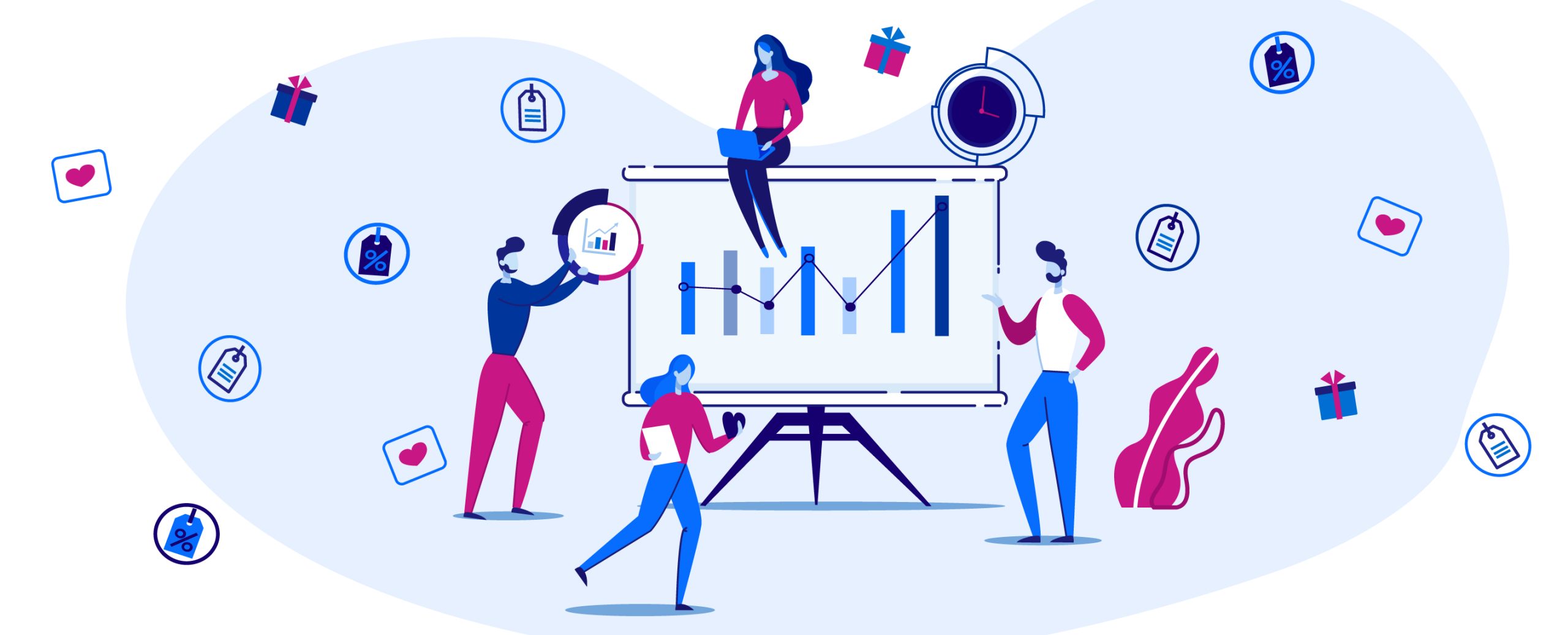Why Personalization Needs Artificial Intelligence

Adobe recently published a landmark report that identifies key opportunities for companies to refine their digital strategies and drive sustained growth in the new year and beyond. The company’s 2022 Digital Trends Experience Index surveyed 10,000 marketers, consultants, and practitioners to map the evolution of marketing, advertising, content, commerce, and customer experience trends around the world. From there, Adobe outlined areas of disparity between marketing organization leaders and their mainstream and laggard rivals. One of those areas, personalization, underscores how important it is for businesses to apply first-party data to create more personal and powerful online experiences.
What Adobe Said about Personalization
According to Adobe, 85 percent of marketing organizations consider themselves “effective/highly effective” when it comes to using first-party data to personalize the customer experience, versus 66 percent of mainstream and 22 percent of laggard organizations. Adobe believes that businesses can break away from the pack by creating more personalized experiences because personalization makes a company stand apart at a time when digital-first experiences are increasingly commoditized.
Contextual, relevant and helpful personalization at scale is the imperative in 2022, according to Adobe. But customer experiences can only be elevated from a foundation of customer trust and strong fundamentals, from integrated data architecture to insight-focused analytics to effective marketing automation.
But how can businesses personalize at scale? Adobe cited the use of artificial intelligence (AI) in context of collecting first-party data (information that people share directly with the business):
How companies gather and extract insights from customer data will become more critical, especially as marketers shift from relying on third-party data and embrace first-party strategies. Our findings suggest that there is much work to be done here as executives see their organization as more effective at collecting first-party data than using it to personalize experiences. Artificial intelligence (AI) is a key area of opportunity that not enough organizations are taking advantage of to drive real-time business decisions and improve customer experiences.
And here is where there is a gap between leaders and laggards. Leaders are assimilating data at scale to personalize experiences. Laggards are still trying to figure out how to collect that data. Adobe believes that too many enterprises are missing an opportunity to apply AI to go beyond data collection to achieve personalization:
Organizations across the board are missing out on opportunities to maximize AI for improved audience understanding, faster insight to action and enhanced, personalized experiences at scale. This is major oversight. What’s more, AI-driven sales forecasting and micro-segmentation solutions aren’t the preserve of the most advanced or the most skilled organizations. They can be readily accessed and maximized by any savvy business to leapfrog the competition.
What Businesses Should Do
At Centific, we believe that applying AI at scale to achieve personalization is achievable. Here is where customer data platforms (CDPs) can play a crucial role. A CDP is a software that collects and stores all your customer data in one place. All your business applications, processes, and marketing efforts use that data for a variety of reasons, including the creation of individual profiles for personalized marketing.
CDPs help are becoming more important at a time when businesses are trying to maximize the value of every customer amid the decline of third-party cookies that restrict how a business can track a person’s behavior across the web.
Many CDPs help marketers collect data. But as Adobe points out, personalization happens when marketers go beyond collecting. This is where AI comes into play. At Centific, our own CMO.AI practice works with Adobe and Acquia CDPs to help businesses create personalized content based on first-party customer data. For instance, AI can help a CDP become more effective with predictive marketing. By combining a CDP with machine learning (a form of artificial intelligence), a business can reliably predict a person’s future behavior (e.g., likelihood to purchase a product) and improve marketing content accordingly.
As more and more companies embrace insights-driven marketing, it’s only going to evolve to become more valued and sophisticated as it enables CMOs and their teams to make even better predictions of customer needs and behaviors.
We’re already seeing the rise of artificial intelligence in marketing, with chatbots and intelligent assistants becoming more common. And as machine learning gets better at understanding customer intent, we can expect even more personalized and relevant experiences to come.
Contact Centific and Unlock Value with CMO.AI
CMO.AI from Centific is a data-driven approach to marketing that optimizes marketing – and the operations that support it – to help your business leverage customer data and best-in-class technology in all-new ways through:
- Data-driven insights that inform every decision you make, from strategy and planning to execution and optimization.
- Real-time experimentation that uses technology to test, learn, and iterate quickly to find what works and optimize for results.
- One-to-one personalization that delivers the right message, to the right person, at the right time at scale.
- Omnichannel orchestration that weaves together the best mix of channels and tactics to reach your customers where they are.
Delivering personalized experiences to people at scale is a challenge all CMOs face. Our CMO.AI solution helps you discover the data patterns that matter, so you can create relevant experiences for each customer and move the digital needle. Contact us to learn more.
